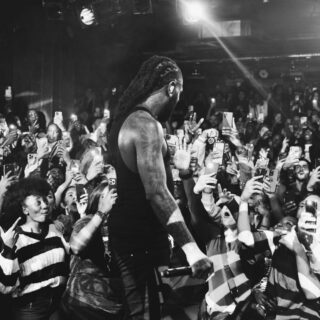In the past couple of years, young Nigerians have gained significant recognition on the global stage through their impact on various aspects of the global economy. Nigerian youths- home and abroad- have made significant contributions to science and technology, politics, media, literature, arts, entertainment, sports, etc. There are the likes of Chimamanda Ngozi Adichie, Tobi Amusan, Uchechi Iweala, Chinedu Echeruo, Victor Osimhen, and Kelechi Iheanacho of those in the diaspora putting the nation on the global map.
Nigeria is the most populous African nation and home to over 200 million people, with an annual population growth of 2.5 per as of 2022. The country has a teeming youth population -housing the largest demography of young people with a median age of 18.1 years in the world. About 70% of its population is under 30, and 42% of that demographic is people under 15.3 years old.
Young people in Nigeria are evolving and innovating through technology and natural skills. While some are disrupting the global scene through science and technology, others are disrupting the global scene through music. Consequently, Nigerian artists are beginning to creatively and authentically drive cultural globalisation through music, particularly, the Afrobeats genre.
Afrobeats is an urban popular music genre that originated in Nigeria. It is a groovy beat layered with good lyrics, particularly on love, life, sex, and whatever the artist deems fit. Nigerian artists are using the genre to shape the global music scene- driving ideas, attitudes, meanings, values and cultural products across national borders. Their music invariably creates cultural globalisation across countries and continents.
More so, Afrobeats artists are not just gaining recognition or receiving awards but also disrupting the type of music consumed globally. In Europe, North America and Asia the genre has become more popular among young people, especially on social media. That has further helped to put Nigerian artists on the global stage, attracting high-level events for some.
Last December, David Adeleke (Davido) performed ‘Hayya Hayya’ (Better Together) at the finals of the 2022 FIFA World Cup alongside Aisha (Qatari) and Trinidad Cardona (American). The performance was held at the Lusail Iconic Stadium in Qatar and had about 88,000 audiences in attendance. Also, other Nigerian singers such as Kizz Daniel and Patoranking performed before football fans at the FIFA fan arena in a series of concerts organised by the football governing body during the tournament. All three Nigerian musicals that performed at the tournament are top Afrobeats superstars. This highlights the growing influence of Nigerian Afrobeats music on the global music culture.
Furthermore, on May 6, Tiwa Savage performed live at Windsor Castle during the coronation of Charles III and his wife, Camilla, as king and queen of the United Kingdom and the other Commonwealth realms. Tiwa Savage, introduced as the ‘queen of Afrobeats’, was the only African and Nigerian musician at the all-star bill of performers at the concert. This highlights the disposition of the British audience towards Afrobeat music.
Most recently, Nigerian singer Divine Ikubor (Rema) embarked on a well-received 3-day music tour in India. Rema became super famous when his song “Calm Down” went viral on social media. Last month, the song made history on the US Billboard Hot 100 Charts as the remix peaked at number eight on the chart. This boosted the singer’s reputation on the global scene while attesting to the global impact of the Afrobeats music genre. The prestigious US music chart has also featured some of Nigeria’s biggest Afrobeats names, including Wizkid, Tems, Ckay, FireboyDML, Burna Boy, Davido and Tiwa Savage.








